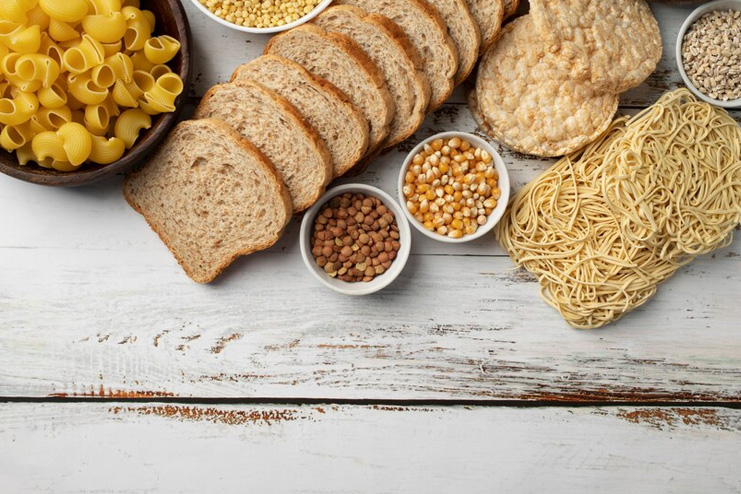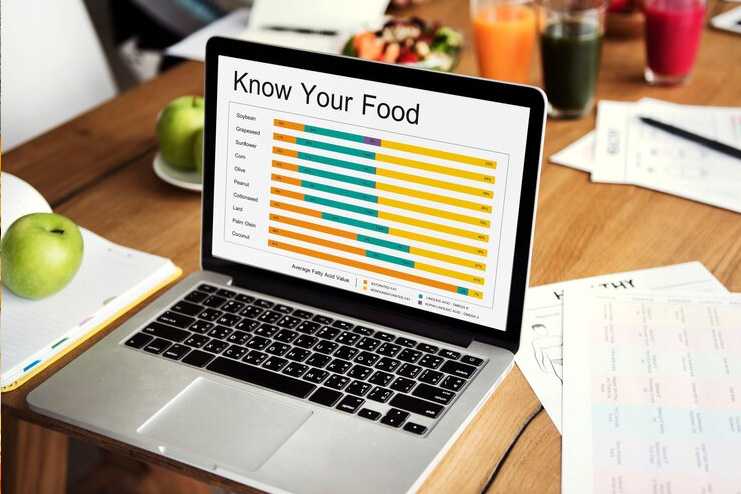Affiliate Disclaimer
Some links in this article are affiliate links. We may earn a small commission if you make a purchase through these links, at no extra cost to you. We only recommend products we find useful to our readersThe management of type 1 diabetes includes more than the monitoring of blood glucose levels; it requires attention to nutrition. Despite the advances in diabetes care, many myths about diet and nutrition persist, potentially complicating diabetes management. These myths can lead to confusion and hinder effective blood sugar control.
This article debunks certain nutritional myths commonly associated with Type 1 diabetes, providing clear, evidence-based information to guide your dietary choices. We will explore the truth behind such prevalent misconceptions, discuss important nutritional facts we can take advantage of, and explain how personalized nutrition can play an important role in the management of Type 1 diabetes.
This article will help you gain a better understanding of how to navigate nutrition for type 1 diabetes and how to make informed decisions to enhance your health and well-being.
Common Nutrition Myths and Facts for Type 1 Diabetes
Myth: Patients with Type 1 should not eat carbohydrates.

Fact: Carbohydrates are a source of energy for the human body and are one of the macronutrients a body requires. Patients with Type 1 diabetes can, in fact, consume carbs. However, you must monitor your carb intake and increase or decrease insulin doses accordingly. With the help of a dietitian, you may learn to calculate carbs and how they affect your blood sugar levels.
Myth: Consuming sugar will lead to diabetic complications.
Fact: While excessive sugar intake can lead to weight gain and an unhealthy lifestyle, sugar consumption in moderation is not harmful. The overall dietary pattern of your whole nutritional intake, carbohydrate load, fiber, and nutrient density matters most.
Myth: You must pay attention to diet only if you have Type 2 diabetes.
Fact: Nutrition is a very important factor in managing both Type 1 and Type 2 diabetes. Type 1 diabetics must balance their food intake with insulin dosage to maintain blood glucose levels. A healthy diet also signifies a healthy lifestyle and weight and reduces the risk of long-term complications in the case of either kind of diabetes.
Myth: Management of Type 1 diabetes is only possible through low-carb diets.

Fact: While some people may indeed do well on a low-carb diet, there is no single dietary approach that is effective for everyone with Type 1 diabetes. Everybody is different in terms of how their bodies respond to any given pattern of food intake. A flexible, balanced diet with carbohydrates, proteins, and fats can be appropriate for a Type 1 diabetic. Speak with a healthcare provider about the best dietary approach for you.
Myth: Artificial sweeteners are safe, and Type 1 diabetics can consume them freely without worrying about any consequences.
Fact: Most artificial sweeteners approved for consumption are relatively harmless when taken as recommended. They will help you indulge in foods and drinks without affecting your blood sugar levels. However, they should be consumed in relatively small quantities keeping your overall diet in mind to prevent any side effects like digestive issues, headaches, and gut health.
Myth: People with Type 1 diabetes cannot consume fruits.
Fact: Fruits are rich in vitamins, minerals, and fiber and can be included in a healthy diet of a diabetic person, provided they pay attention to serving sizes and choose whole fruits rather than fruit juices. Fruit combined with foods rich in protein or healthy fat slows down sugar absorption and regulates blood sugar.
Myth: People with Type 1 diabetes should avoid fats.

Fact: Not all fats are the same. Foods with healthy fats include avocados, nuts, seeds, and olive oil, suitable for heart health and overall well-being. For those diagnosed with diabetes, it is recommended that they get more healthy fats and avoid trans fats from processed foods and saturated fats from fatty cuts of meat. A balanced diet rich in healthy fats helps people maintain their blood sugar levels and protects them from heart disease.
Myth: Diabetics have to take special “diabetic” foods.
Fact: “Diabetic” foods are often sold to individuals with diabetes at a higher cost, but they are not always nutritionally superior to regular foods. Any food can be included in a diabetic diet if balanced meals, portion control, and nutrient density are maintained. The foundation of any diet is the inclusion of whole, unprocessed foods including fruits, vegetables, whole grains, lean proteins, and healthy fats.
Myth: Fruit juice can be consumed if you are a Type 1 diabetic.
Fact: Fruit juices are extremely high in natural sugars and low in fiber, which raises blood sugar. Whole fruits are good options because of their fiber content, which helps regulate elevated blood sugar by slowing digestion and absorption. Thus, fruit juice should be consumed in minimal quantities, and the best option is to consume whole fruits. They can be consumed in moderation as part of a balanced diet.
Conclusion
Knowing the truth about nutrition is important in managing Type 1 diabetes. By busting the myths and focusing on the real facts, better food choices can be made to help maintain health. Follow evidence-based advice, control your carbohydrate intake, and seek professional tips from your doctor.
Test Your Understanding of Type 1 Diabetes Nutrition

- Intaking sugar would make you diabetic.
a) Myth
b) Fact
2. Patients with type 1 diabetes can intake anything they want but they have to take insulin.
a) Myth
b) Fact
3. Carbohydrates are hazardous to those with type 1 diabetes and should be avoided altogether.
a) Myth
b) Fact
- A diabetic diet is similar to a healthy diet for all human beings.
a) Myth
b) Fact
- Diabetic patients should not take fruits as they contain sugar.
a) Myth
b) Fact
- Diabetics must take regular meals and snacks.
a) Myth
b) Fact
- Low-fat and sugar-free products are always recommended for diabetics.
a) Myth
b) Fact
- The smaller, more frequently you take the meals, the better the blood sugar is regulated.
a) Myth
b) Fact
Answers:
- Myth -Type 1 diabetes (T1D) is an autoimmune disease where the body attacks beta cells in the pancreas that produce insulin. Sugar doesn’t cause T1D.
- Myth – People with T1D can eat most of the foods, though macros intake must be monitored carefully and insulin doses should be adjusted accordingly to avoid blood sugar fluctuations.
- Myth – Carbs are not bad if controlled. T1D patients need to adjust their carb intake for insulin management.
- Fact – A healthy diet for a patient with T1D is nothing but a balanced diet. It’s just that healthy people do not pay attention to it and diabetics need to.
- Myth – Fruits contain natural sugars but are part of healthy eating for most of us, contributing essential vitamins, minerals, and fiber. Individuals with T1D can eat fruits as part of their diet but must plan for carbohydrates when calculating insulin.
- Fact – Having meals and snacks at regular intervals of time helps maintain blood glucose levels. The timing and the portion size may need to be adjusted according to insulin needs.
- Myth – Low-fat or sugar-free does not necessarily mean better. Many sugar-free products contain sugar alcohols or other ingredients that affect blood sugar.
- Myth – Smaller and more frequent meals will do good, but it’s not true for everyone. It’s more about how well meal timing, carbohydrate intake, and insulin dosing are matched to individual needs and blood glucose patterns.
In this Article






















